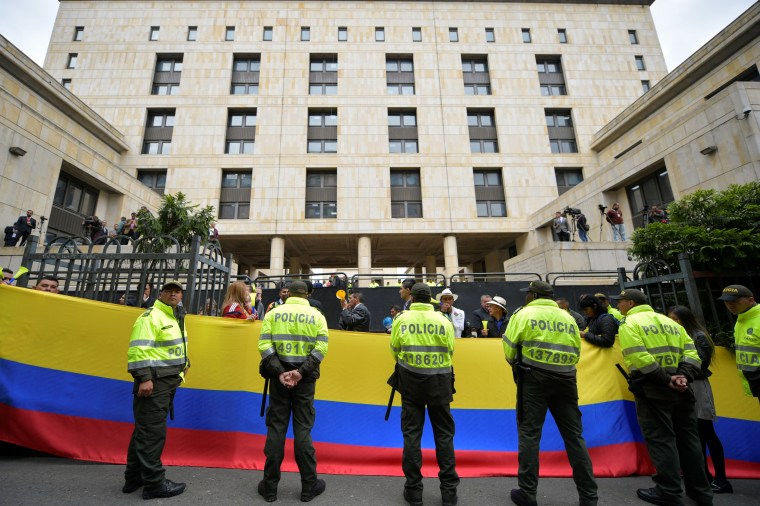On September 28, 2020, a Colombian judge ordered online broadcaster Semana TV to take down an episode of one of its news programs, and ordered an investigation into how two of the station’s journalists obtained confidential information aired in that episode, according to news reports.
The court order, which was made public on October 6 and which CPJ reviewed, was issued by Judge Octavio Carillo of Bogotá’s Second Circuit Criminal Court and involves the August 30 episode of “Vicky en Semana,” a daily news program aired on Semana TV, an online broadcaster owned by the independent Bogotá newsmagazine Semana.
That episode aired audio from secretly recorded phone conversations between members of the family of Juan Guillermo Monsalve, a former member of an illegal paramilitary group, according to those news reports.
The court order stated that Semana TV had violated the intimacy of the Monsalve family, and was issued in response to a notice filed by Marta Elena Monsalve, the former militant’s sister.
Juan Guillermo Monsalve is serving a 40-year prison sentence for crimes committed while part of a right-wing paramilitary group, and is a key witness in a criminal investigation of former Colombian President Álvaro Uribe for alleged bribery and witness tampering; the recordings had been made at the request of Colombia’s Supreme Court, according to those news reports.
Carillo wrote in his order that, while journalists have the right to inform the public, they must not publish confidential evidence from criminal cases, and ordered Semana TV to remove the August 30 episode within 48 hours. The order also called on the attorney general’s office to open an investigation into how journalists Vicky Dávila, host of “Vicky en Semana,” and Jairo Lozano, who works for the program, obtained the recordings.
In an article published on October 10, Semana said it would adhere to the judge’s order but said his decision would have “grave consequences” for press freedom. Dávila told CPJ via messaging app that the August 30 episode had been taken offline.
Jaime Arrubla, a lawyer for Semana, told CPJ in a phone interview that the outlet was appealing the decision and did not know whether the attorney general’s office had opened an investigation into how the journalists obtained the recordings.
CPJ called the press offices for the attorney general’s office and the Ministry of Justice for comment, but no one answered.
In a statement, the Bogotá-based Foundation for Press Freedom called the judge’s decision “excessive” and said his order to investigate the leaks to the journalists was “worrisome” and ignored the constitutional right of Colombian journalists to use anonymous sources.
